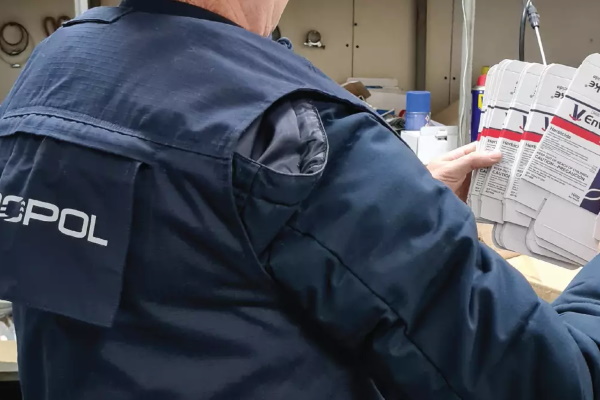
Counterfeit pesticides are increasingly being manufactured within the EU, although China and Turkey remain major sources of illegal imports, according to international police agency Europol.
That is among the conclusions of Operation Silver Axe VII, which took place between January 25 and April 25 this year and resulted in the seizure of 1,150 tonnes of illegal pesticides at airports and other EU market entry points, roughly in line with last year's haul.
Enforcement agencies made 10 arrests during the operation, which also found production equipment and raw materials shipped to Europe that according to Europol suggests a rise in counterfeiting activities within EU borders. A production facility was also discovered in Bulgaria.
In some cases, the criminals behind the activity import almost finalised products in containers resembling well-known brands, which are then labelled within the EU before being placed on sale. In others, illegal ingredients for the production of pesticide are imported, for later synthesis, packaging and labelling.
There was also an increase of the trafficking of illegal pesticides in the south of Europe and the Black Sea area, and a rise in the number of smaller consignments up to 10 litres/kilograms, which may be an attempt to evade detection.
In addition to border checks, authorities have also been monitoring online shops, which provide a physical address for the collection of products purchased online.
Counterfeit pesticides contain chemicals that are either banned or restricted in the EU due to the potential risks they may pose, and are not authorised for sale by authorities.
They can lead to crop failures and sometimes contain toxic or flammable ingredients that can make even transport unsafe, according to the European Crop Care Association (ECCA) industry body.
The trade of illegal pesticides varies from trafficking counterfeit or mislabelled products to the irregular import of banned substances such as chlorpyrifos.
Although the trafficking of herbicide, insecticide and fungicide containing banned substances remains steady, the operation also revealed that the counterfeiting of commonly used brands for these products is now growing.
Criminals are also misusing the EU's parallel trading system, which eases the approval procedures of pesticides sold within the EU, according to Europol.
"As part of this system, a plant protection product that is authorised in one member state…may, subject to granting a parallel trade permit, be introduced, placed on the market or used in another member state," it said.
"Some criminals abuse this system by introducing illegally produced plant protection products to a member state, fraudulently claiming that they have already been approved in a different member state and thereby removing the need for further approvals."
©
SecuringIndustry.com





